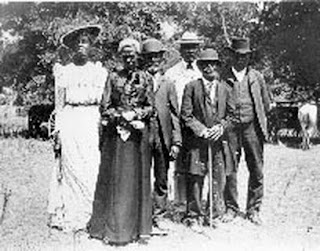Discrimination persists in housing, credit and labor markets.
The wealth gap between white and African-American families increased more than four times between 1984-2007, and middle-income white households now own far more wealth than high-income African Americans, according to an analysis released by the Institute on Assets and Social Policy (IASP) at Brandeis University.
IASP, in a research brief, also reported that many African-Americans hold more debt than assets and at least 25 percent of African-American families had no assets to turn to in times of economic hardship. The fourfold increase in the wealth gap, it said, reflects public policies, such as tax cuts on investment income and inheritances, which benefit the wealthiest and persistent discrimination in housing, credit and labor markets.
 | "Our study shows a broken chain of achievement. Even when African-Americans do everything right -- get an education and work hard at well-paying jobs -- they cannot achieve the wealth of their white peers in the workforce, and that translates into very different life chances," said Thomas Shapiro, IASP director and co-author of the research brief.
"A U-turn is needed. Public policies have and continue to play a major role in creating and sustaining the racial wealth gap, and they must play a role in closing it," said Shapiro, author of "The Hidden Cost of Being African American: How Wealth Perpetuates Inequality" and the co-author of "Black Wealth/White Wealth." |
Wealth, what you own minus what you owe, allows people to start a business, buy a home, send children to college and ensure an economically secure retirement. Using economic data from the same nationally representative set of families from 1984 to 2007, the IASP analysis found that the real wealth gains and losses over the time demonstrate an escalating racial gap.
Over those 23 years, it said, the racial wealth gap increased by $75,000 – from $20,000 to $95,000. Financial assets, excluding home equity, among white families grew from a median value of $22,000 to $100,000 during that period while African Americans saw very little increase in assets in real dollars and had a median wealth of $5,000 in 2007.
Summing up all assets and debt, one in 10 African Americans owed at least $3,600 in 2007, nearly doubling their debt burden in real terms since 1984, IASP said.
The growth of the racial wealth gap significantly affects the economic future of American families, it said. The current gap is so large that it would pay tuition at a four-year public university for two children, purchase or make a solid down payment on a house, or provide a nest egg to draw upon in times of job loss or crisis.
"The gap is opportunity denied and assures racial economic inequality for the next generation," said Tatjana Meschede, a co-author of the policy brief.
Notably, IASP's analysis found that by 2007, the average middle-income white household had accumulated $74,000 in wealth, an increase of $55,000 over the 23-year period, while the average high-income African-American family owned $18,000, a drop of $7,000. That resulted in a wealth gap of $56,000 for an African-American family that earned more than $50,000 in 1984 compared to a white family earning about $30,000 that same year.
Those figures, IASP said, make it clear that higher income alone will not lead to increased wealth, security and economic mobility for African Americans. Consumers of color face a gauntlet of barriers -- in credit, housing and taxes -- that dramatically reduce the chances of economic mobility, it said.
Indeed, the data indicate that the general trend in lending, in which consumers of color pay more for accessing credit, increases their debt and blocks opportunities to move forward, putting them at a severe economic disadvantage. These are concerns that must be addressed through the creation of a Consumer Financial Protection Agency, now being debated in Congress, and other policy changes, IASP said.
"The data suggests we need renewed attention to public policies that provide real opportunities for advancement by reducing barriers to mobility inherent in our tax system and increasing transparency, regulation and access in our housing and credit markets," said Laura Sullivan, another co-author.
Several factors help explain why improving targeted public policies would reduce the racial wealth gap and lessen the increased reliance on debt. One factor is that over the period studied there was an increasing dependence on credit markets to make ends meet. Among those with no financial assets, credit is often an emergency resource to help cover a job loss or medical emergency.
A second factor is that deregulation of the lending market brought a proliferation of high-cost credit, including securitized subprime and predatory loans, payday lending and check-cashing stores. Consumers of color were targeted in this market and resorted more frequently to credit cards and other forms of high-cost debt in the absence of assets or extended family resources to draw upon.
"The data make a critical contribution to the debate today about how to ensure greater economic security and opportunity for all our citizens. A racial wealth gap affects all of us because it means that a large portion of the population cannot contribute to building the wealth and strength of our nation, and that is a drain on us all," said Meizhu Lui, director of the Insight Center for Community Economic Development's "Closing the Racial Wealth Gap Initiative."
The Institute on Assets and Social Policy is a research institute at the Heller School for Social Policy and Management at Brandeis University dedicated to promoting a better understanding of how assets and asset-building opportunities improve the well‐being and financial stability of individuals and families left out of the economic mainstream. IASP pursues its mission through original research, policy analysis, program evaluation, technical assistance, community engagement, organizational capacity building, and leadership development.
The Heller School for Social Policy and Management, Brandeis University 415 South Street • MS 035 • Waltham, MA 02454-9110 News Release Contact: Laura Gardner 781-736-4204 gardner@brandeis.edu


































